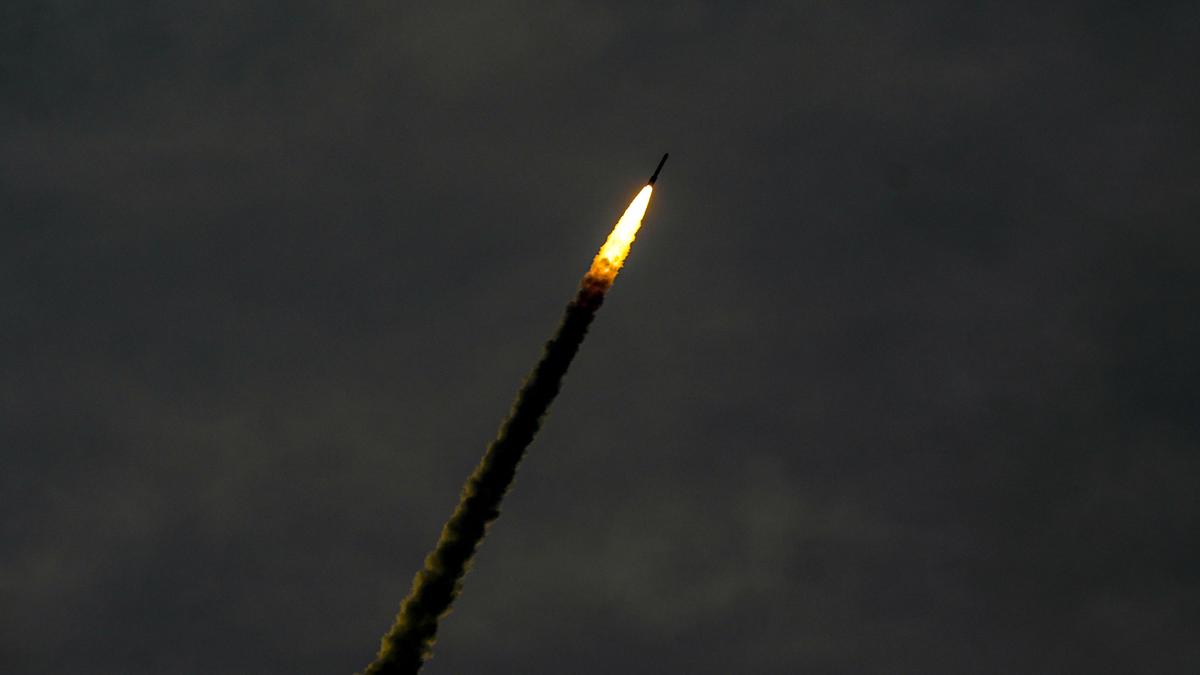The PSLV-C61 mission, launched by the Indian Space Research Organisation (ISRO) on May 18, 2025, was intended to place EOS-09, an Earth observation satellite, into a sun-synchronous orbit. The mission lifted off from the Satish Dhawan Space Centre at Sriharikota.
EOS-09, also called RISAT-1B, was designed to carry a C-band Synthetic Aperture Radar (SAR), useful for remote sensing tasks such as agriculture monitoring, disaster response, forestry analysis, and national security.
Sequence of Events
- The first and second stages of the PSLV rocket functioned as expected.
- During the third stage ignition, an anomaly occurred — a sudden drop in chamber pressure was detected.
- As a result, the third stage did not deliver the required thrust, preventing the vehicle from reaching its planned orbit.
- Consequently, the payload could not be deployed, and ISRO declared the mission as not accomplished.
Technical Failure and Suspected Cause
Initial telemetry data pointed to a malfunction in the flexible nozzle control system of the third stage solid rocket motor, which helps steer the rocket. A failure in this component may have led to an improper burn and loss of thrust, deviating the mission trajectory.
ISRO Chief S. Somanath confirmed the loss and stated that a Failure Analysis Committee (FAC) has been constituted to:
- Investigate the root cause.
- Assess any design or system-level faults.
- Recommend corrective actions for future missions.
Historical Context
- This is only the third failure in the otherwise highly successful PSLV launch history.
- Earlier failures were:
- PSLV-D1 in 1993 (maiden flight).
- PSLV-C39 in 2017 (heat shield separation failure).
- PSLV has successfully launched over 300 satellites in previous missions.
Implications and Way Forward
Although the EOS-09 loss is a significant operational setback, ISRO remains confident in the PSLV’s overall reliability. The agency is:
- Reviewing quality checks.
- Enhancing component testing.
- Reaffirming focus on precision and safety in future launches.
ISRO emphasized its commitment to transparency, continuous learning, and advancement in India’s space capabilities despite the occasional failures inherent to complex space missions.
